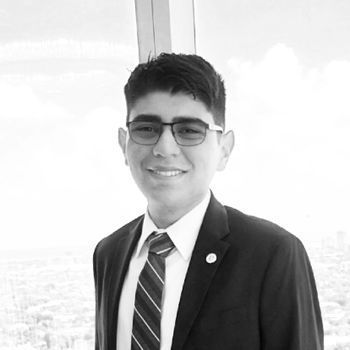Virginia bill would create reparations scholarships
A Virginia bill proposed a new scholarship exclusively for descendants of slaves.
One professor and scholar, however, pointed out to Campus Reform that such a bill would violate federal law.
A bill in the Virginia legislature proposed that college scholarships be given exclusively to those descended from slaves.
The Virginia House of Delegates passed a bill that would create scholarship programs exclusively for a subset of people. The bill’s original form denoted that the funds be given to students of a specific race, but the language was softened to extend to “individuals or specific communities with a demonstrated historic connection to slavery.”
The bill states that public universities such as “Longwood University, the University of Virginia, Virginia Commonwealth University, the Virginia Military Institute, and The College of William and Mary in Virginia” would be required to implement the annual practice of both “identifying and memorializing, to the extent possible, all enslaved individuals who labored on former and current institutionally controlled grounds and property” and “providing a tangible benefit such as a college scholarship or community-based economic development program for individuals or specific communities with a demonstrated historic connection to slavery that will empower families to be lifted out of the cycle of poverty.
“The Enslaved Ancestors College Access Scholarship and Memorial Program” has the stated purpose of “reckoning with the history of the Commonwealth”, and “addressing the long legacy of slavery in the Commonwealth.” Furthermore, it acknowledges “that the foundational success” of these universities was based on the “labor of enslaved individuals.”
[RELATED: College caves to students’ demands for ‘reparations fund,’ help for illegal immigrants]
The bill would organize a council whose responsibility would be to facilitate collaboration with universities for the “implementation of the program.” These duties include the development of guidelines for the “identification of all enslaved individuals who labored on former and current institutionally controlled grounds and property,” as well as means to “memorialize these individuals,” and programs for those “still experiencing the legacy of slavery to empower them to break the cycle of poverty.”
The bill stipulates that these requirements should be in place for a “period equal in length to the period during which the institution used enslaved individuals to support the institution” or “or until scholarships have been awarded to a number of recipients equal to 100 percent of the population of enslaved individuals identified.”
[RELATED: ‘Trying to forget history’? Auburn history prof advocates renaming buildings]
University of Michigan professor and American Enterprise Institute scholar Mark Perry, who often fights back against what he says is discrimination, told Campus Reform that the scholarships “would violate Title VI’s prohibition of discrimination in higher education on the basis of race and color.”
Since these universities receive public funds, he stated that “they are legally required to enforce Title VI’s prohibition of discrimination based on race or color.” That by providing these scholarships, they are clearly discriminating “on the basis of race and color.”
According to Perry, this would clearly violate Title VI, “and would therefore jeopardize those universities’ federal funding from the Department of Education.”
He stated that “racially exclusive practices in general and restricting eligibility for a scholarship on the basis of race or color, in particular, would violate Title VI and would be prohibited according to the Office for Civil Rights.”
Although Perry is “not aware of the details of politics in Virginia,” it is his opinion that this “bill has no chance of passing, because it would require universities in Virginia to violate federal civil rights laws (Title VI).”
However, in the event that the bill does pass, Perry said he “would be ready to immediately file a Title VI complaint with the Office for Civil Rights and would expect that complaint to be investigated and resolved by the OCR prohibiting universities in Virginia from discriminating on the basis of race or color.”
Follow the author of this article on Twitter: @ajmunguia23


